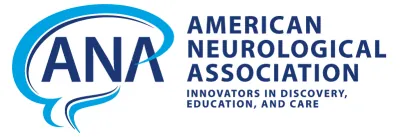
Revolutionary Digital Test Enhances Alzheimer's Screening in Clinics
2025-09-16
Author: Arjun
A Breakthrough in Alzheimer's Diagnosis
In a groundbreaking advancement, researchers from Lund University in Sweden have introduced a cutting-edge digital cognitive test designed to streamline the diagnosis of Alzheimer's disease within primary care settings. This innovative tool allows patients to assess their cognitive abilities independently, with minimal input from healthcare professionals, ultimately helping doctors decide who should undergo further evaluation.
A Significant Step Forward
Professor Oskar Hansson, who spearheaded the study alongside Pontus Tideman, emphasizes the importance of this tool in early Alzheimer's detection. He notes that accurate and timely diagnosis is more critical than ever now that new treatments are emerging. This development comes amidst a backdrop where cognitive impairment might not solely indicate Alzheimer's, as conditions like depression or other forms of dementia can produce similar symptoms.
Meet BioCog: The Digital Lifesaver
Enter BioCog, the digital cognitive test that puts the power of diagnosis in the hands of patients. This self-administered assessment primarily focuses on memory, attention, and other cognitive capabilities, helping to identify impairments that could signal Alzheimer's. If cognitive issues are flagged, patients can then proceed to blood tests that detect Alzheimer's-related pathology.
Why Digital is the Future of Diagnosis
Unlike traditional pen-and-paper tests, the BioCog digital test offers a nuanced analysis of cognitive function through various metrics, including processing speed and recall abilities. Professor Hansson points out how primary care most often lacks the resources or specialized training to diagnose Alzheimer’s comprehensively, making this digital solution an invaluable asset.
Streamlining the Diagnostic Process
The test takes place on a tablet, measuring aspects such as memory retention, cognitive processing speed, and orientation. Patients must memorize words and recognize them, while the test records their reaction times and accuracy. This data provides physicians with a compelling baseline to assess whether individuals should proceed to blood tests that measure phosphorylated tau levels, providing high diagnostic accuracy.
Revolutionizing Care for Cognitive Patients
Currently, blood tests for Alzheimer's pathology are limited to specialized clinics, but the goal is to make these more accessible in primary care. BioCog's unique design, focused on a primary care population, highlights the invaluable role digital tools can play in accurately diagnosing Alzheimer's during time-constrained patient visits.
Looking Ahead: The Future of Alzheimer's Screening
With BioCog, researchers aim to simplify the diagnostic process for primary care physicians, crafting a clearer pathway to identify those who may benefit from the latest Alzheimer’s treatments. The integration of this innovative tool into everyday healthcare holds the promise of transforming how we approach cognitive care, making early and accurate diagnosis more attainable than ever before.
Conclusion: A New Era of Alzheimer's Diagnosis
As the medical community continues to grapple with the complexities of Alzheimer's disease, advancements like the BioCog digital test represent a hopeful leap forward. By merging technology with healthcare, we may not only improve diagnostic accuracy but also empower patients and doctors alike in the fight against this devastating condition.



 Brasil (PT)
Brasil (PT)
 Canada (EN)
Canada (EN)
 Chile (ES)
Chile (ES)
 Česko (CS)
Česko (CS)
 대한민국 (KO)
대한민국 (KO)
 España (ES)
España (ES)
 France (FR)
France (FR)
 Hong Kong (EN)
Hong Kong (EN)
 Italia (IT)
Italia (IT)
 日本 (JA)
日本 (JA)
 Magyarország (HU)
Magyarország (HU)
 Norge (NO)
Norge (NO)
 Polska (PL)
Polska (PL)
 Schweiz (DE)
Schweiz (DE)
 Singapore (EN)
Singapore (EN)
 Sverige (SV)
Sverige (SV)
 Suomi (FI)
Suomi (FI)
 Türkiye (TR)
Türkiye (TR)
 الإمارات العربية المتحدة (AR)
الإمارات العربية المتحدة (AR)